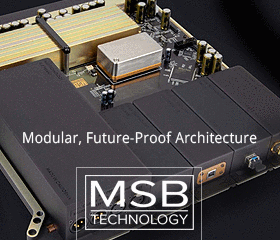Some folks, who are really into digital, say to those still using SPDIF or AES connections: "You haven't really heard USB until you have heard it done right!".
Yet at the same time we all have heard a slight variation of the above quote - "doing DSD right", "doing tubes right", "doing SS right", etc. Despite the proclamations, ones preferences for the sound of a particular technology usually triumphs.
Does USB have a sonic signature, like tubes vs. SS, analog vs. digital, or DSD vs. PCM?
Are people talking about subjective elements of USB or is this purely a technical subject?
What exactly does doing USB "right" mean?
Yet at the same time we all have heard a slight variation of the above quote - "doing DSD right", "doing tubes right", "doing SS right", etc. Despite the proclamations, ones preferences for the sound of a particular technology usually triumphs.
Does USB have a sonic signature, like tubes vs. SS, analog vs. digital, or DSD vs. PCM?
Are people talking about subjective elements of USB or is this purely a technical subject?
What exactly does doing USB "right" mean?













